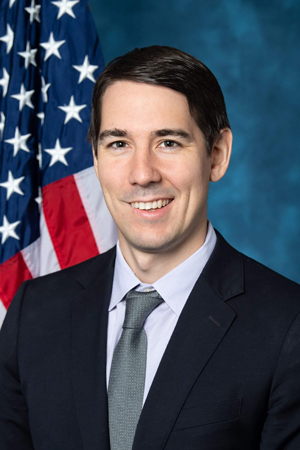Late last year, new rules were implemented that allow debt collectors to contact consumers via Facebook and Instagram as well as text message and email
February 9, 2022 - WASHINGTON, D.C. – Representative Josh Harder sent a letter to Consumer Financial Protection Bureau (CFPB) Director Rohit Chopra  urging the agency to reconsider its recent decision to allow debt collectors to contact consumers via Facebook and Instagram as well as text message and email. “Don’t be surprised if debt collectors slide into your DMs,” CNBC wrote in December, “A new rule allows debt collectors to contact you on social media, text or email — not just by phone.” Read more on the recent CFPB decision from the agency itself and in Forbes and NPR.
urging the agency to reconsider its recent decision to allow debt collectors to contact consumers via Facebook and Instagram as well as text message and email. “Don’t be surprised if debt collectors slide into your DMs,” CNBC wrote in December, “A new rule allows debt collectors to contact you on social media, text or email — not just by phone.” Read more on the recent CFPB decision from the agency itself and in Forbes and NPR.
The FBI’s most recent report shows Americans lost more than $4.2 billion specifically to internet crime in 2020. Including phone scams, Americans lost $19.7 billion to fraudsters that year. In 2021, this number is up to $29.8 billion.
“Nobody wants a debt collector messaging them on Facebook or in their Instagram DMs. Not only is that just plain invasive, but it also opens up a whole new world for scammers out there trying to steal from our seniors and loved ones,” said Rep. Harder. “Today I’m urging the CFPB to reverse this ridiculous decision and go back to the drawing board when it comes to protecting folks from abusive debt collectors and potential fraudsters. The CFPB is right to be thinking about updating its rules for the 21st century, but opening our private messages to debt collectors is not the way to do it.”
Read the letter below and online here:
Dear Director Chopra,
I write today to express my concern regarding the Consumer Financial Protection Bureau’s (CFPB) November 2021 decision that allows debt collectors to contact consumers through their personal text messages, social media accounts, and emails. I strongly urge you to reconsider this decision and disallow these practices from occurring due to the personal nature of these forms of communication and the potential for fraud.
I understand the CFPB’s desire to modernize and adapt communication methods to fit with the current time, but I am deeply concerned that this rule will increase the potential for individuals to fall prey to scams. While I appreciate the CFPB’s efforts to ensure that debt collectors identify themselves with each communication, this practice has opened the door for fraudulent activity. Over the years, we have seen how easily a scammer can pose as a trusted source and prey on unsuspecting individuals. Last year, Americans lost $29.8 billion to phone scams. Allowing debt collectors to call, text, and leverage social media will add confusion and further increase an individual’s vulnerability to scams.
By allowing debt collectors to contact consumers through phone calls, text messages, and social media messages, the CFPB has inadvertently provided criminals with another opportunity to exploit and manipulate consumers into providing personal information or soliciting illegal payments. While consumers of all ages can be targeted by bad actors, I am particularly concerned about the vulnerabilities of our seniors, many of whom are not as familiar with the best practices for differentiating between fraudulent and real messages. This concern is not unfounded as data has shown that seniors lose approximately three billion dollars to scams each year. In fact, one of the most common scams targeting older individuals is when criminals pose as official agencies seeking private information or money. With these concerns in mind, I strongly urge you to reconsider allowing debt collectors to reach out to consumers in these manners without their prior consent. Instead, I encourage the CFPB to allow consumers to opt into these modes of communication should they choose to do so.
Thank you for your attention to this critical matter, and I look forward to working with you to resolve this issue.
Source: Congressman Josh Harder








